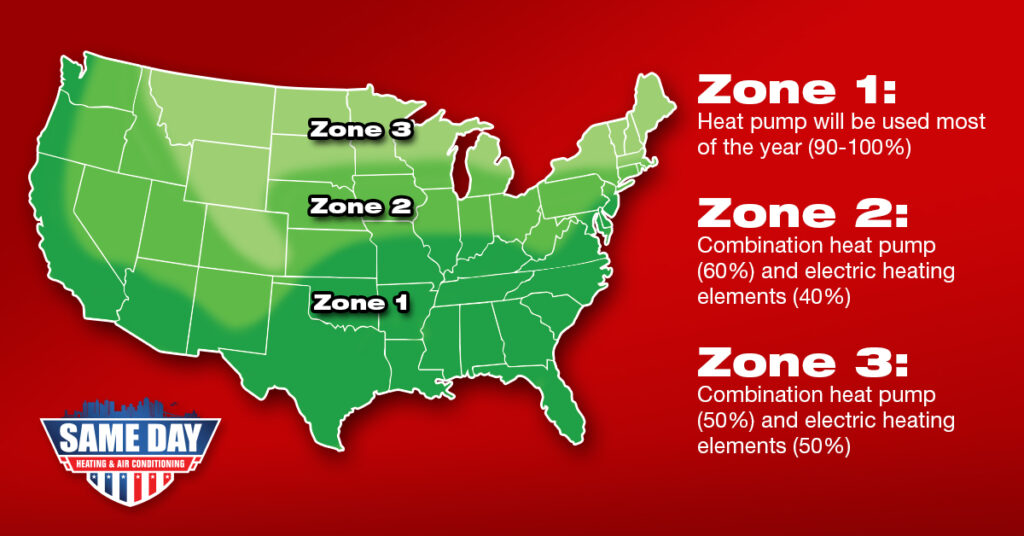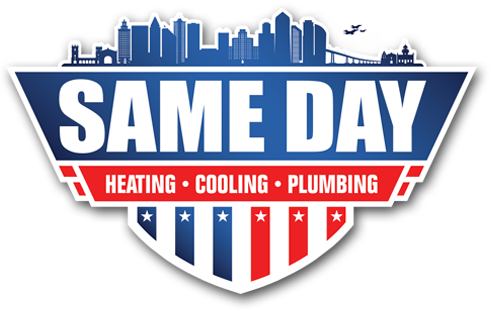Furnace Vs. Heat Pump: Which System is Best for Your Home?
When it comes to heating a home, there are two systems to choose from: furnaces and heat pumps. Unless you are well-versed in HVAC systems, understanding how to choose between furnaces and heat pumps can be overwhelming.
Furnaces are generally better in colder climates. However, heat pumps are becoming increasingly popular in western parts of the country because they draw warmth from the outdoors – acting as a reverse air conditioner of sorts.
Aside from location, there are several purchasing factors that dictate what heating option is the best solution for your San Diego area home.
Factor 1: Geography and Location
Heat pumps will typically only work in mild, coastal climates while furnaces can endure the coldest of temperatures and the harshest winter conditions. A general rule of thumb is to use a heat pump if the average winter temperature of your location is above 40 degrees Fahrenheit, or a furnace if the average winter temperature is below 40 degrees Fahrenheit.
Therefore, a lot of consumers opt for a dual approach meaning they use a combination of both heat pumps and furnaces. Figure 1 (Below) highlights the 3 geographical zones and the solution each zone typically uses.

Factor 2: Cost
Generating heat requires a lot of energy. Whether it be propane, natural gas, or electric, the energy costs money.
Heat pumps use much less energy than electric and gas furnaces. Because a heat pump pulls warmth from the outdoors rather than generating its own heat, it only needs enough electricity to circulate refrigerant through its pressured lines.
On average per winter season, heat costs about:
- $1,500 for propane furnaces
- $800 for natural gas furnaces
- $900 for electric
- $500 for a heat pump
Although these prices can vary based on local utility costs and unit specifications, heat pumps are typically more cost-efficient if used in the right location.
Along with cheaper energy costs, the cost to install most air-to-air heat pumps are significantly cheaper than installation of gas or electric furnaces. Gas and electric furnaces cost around $4,500 – $5,500 for installation. Heat pumps average anywhere from $3,000 – $4,000.
Factor 3: Efficiency
Under ideal weather conditions, a heat pump can transfer 300% more energy than it consumes, and it will run at over 100% efficiency. High-efficiency gas and electric furnaces run at about 90% efficiency.
Since heat pumps are powered solely by electricity, fuel consumption is dissipated in comparison to furnaces.
Factor 4: Lifespan and Maintenance
Gas and Electric furnaces normally have a longer life span than that of heat pumps. Furnaces have a life span of about 20 years, while heat pumps typically last around 15 years.
Heating elements of furnaces are only used for a portion of the year; therefore, the maintenance requirements are much less than those for a heat pump. Moreover, furnaces have fewer mechanical parts than a heat pump, so the chances of parts breaking is decreased.
Additionally, furnaces are easier to repair compared to heat pumps, and also require less maintenance.
What System is Right for You?
Every home is different, but there are a handful of components to recognize when choosing what system is right for you. These are four of them, but there could be more.
The biggest factor to recognize is geographical location of the home, followed by cost, efficiency, and maintenance. Although all factors that were highlighted in this article play a pivotal role in the purchasing process, geographical location is by far the most crucial. If you have cold, snowy winters than a furnace is your best option. If you have mild winters than a heat pump is what you will need.
Given that San Diego is in a mild climate, we recommend heat pumps if they fall within your budget. But a high-efficiency furnace can keep your home cool, particularly if you live in an area of San Diego that can get chilly in the winter time.
Visit Same Day Heating and Air Conditioning for more information!
